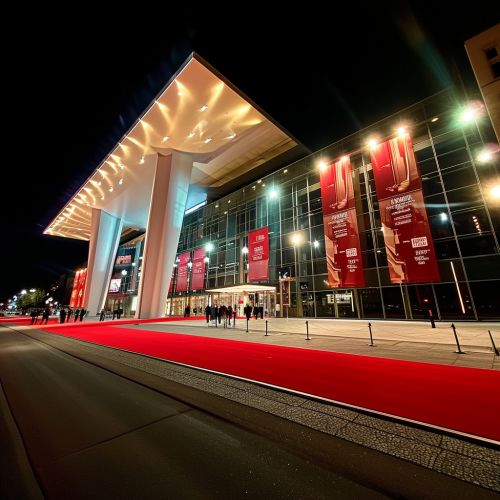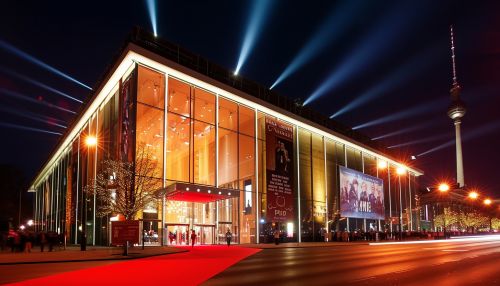Berlin International Film Festival
History
The Berlin International Film Festival, also known as the Berlinale, is one of the world's leading film festivals and most reputable media events. It is held annually in Berlin, Germany, and has been a significant forum for international film since its establishment in 1951. The festival encompasses a wide range of film genres, including feature films, documentaries, short films, and animation, attracting filmmakers and film enthusiasts from around the world.


The festival was first proposed in 1950 by Oscar Martay, a film officer in the American military government in Germany after World War II. Martay's proposal was to create a showcase for free, democratic, and artistically valuable films in Berlin, which was then a divided city. The first Berlinale took place in June 1951, and it was an immediate success, attracting a large audience and significant international attention.
Structure and Organization
The Berlinale is organized by the Berlin International Film Festival GmbH, a subsidiary of the Kulturveranstaltungen des Bundes in Berlin GmbH. The festival is funded by the German Federal Government Commissioner for Culture and the Media, the Senate Department for Culture and Europe of Berlin, and the German Federal Film Board.
The festival is divided into several sections, each dedicated to a specific genre or theme. These include the Competition, Panorama, Forum, Generation, Perspektive Deutsches Kino, Berlinale Shorts, and Retrospective sections. Each section has its own selection committee, composed of film industry professionals, and its own awards.
Awards
The most prestigious award at the Berlinale is the Golden Bear, which is awarded for the best film in the Competition section. The Silver Bear awards are also highly regarded, with categories including Best Director, Best Actor, Best Actress, and Best Screenplay. The Alfred Bauer Prize, named after the festival's first director, is awarded for a feature film that opens new perspectives in the art of filmmaking.
Impact and Significance
The Berlinale has played a significant role in the global film industry, both as a platform for new films and filmmakers and as a forum for political and social discourse. The festival's commitment to diversity and representation has made it a beacon for films dealing with themes of social justice, human rights, and cultural exchange.
The festival has also been instrumental in promoting German cinema on the international stage. Many German films have gained international recognition and distribution as a result of their success at the Berlinale.
